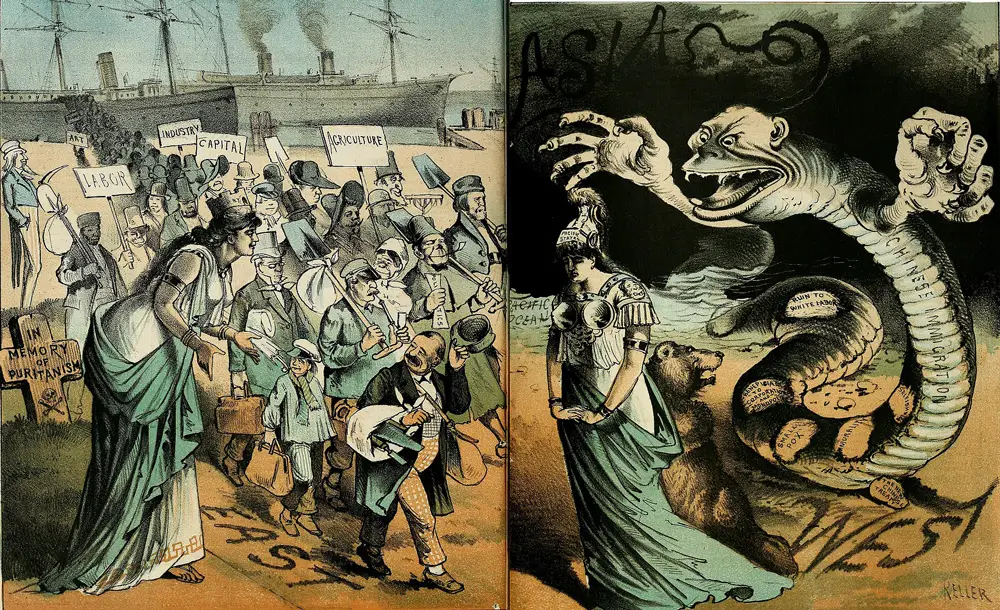
A federal appeals court Thursday said a Florida law restricting people from China from owning property in the state likely is trumped by federal law and blocked its enforcement against two plaintiffs who have been in the midst of real-estate transactions.
A three-judge panel of the 11th U.S. Circuit Court of Appeals declined to issue a broader injunction, in part pointing to oral arguments that will be held in the case in April.
But the panel said the plaintiffs “have shown a substantial likelihood of success on their claim” that the Florida law is “preempted” by a federal law known as the Foreign Investment Risk Review Modernization Act of 2018. Generally, federal laws take precedence over state laws if there is a conflict.
The federal law includes what is known as the Committee on Foreign Investment in the United States, or CFIUS, which has power to review real-estate transactions involving certain people from other countries.
In a November brief, attorneys for the plaintiffs argued the state law “wrests control of foreign affairs from the federal government and replaces Congress’s carefully crafted approach with the far more draconian regime Florida prefers.”
Four individual plaintiffs and a real-estate broker filed the legal challenge last year after Gov. Ron DeSantis and the Republican-controlled Legislature approved the restrictions while citing a need to curb the influence of the Chinese government and the Chinese Communist Party in Florida.
The law (SB 264) affects people from what Florida calls “foreign countries of concern” — China, Russia, Iran, North Korea, Cuba, Venezuela and Syria. But the legal battle focuses on specific restrictions on people from China who are not U.S. citizens or permanent U.S. residents.
Those restrictions prevent people “domiciled” in China from purchasing property in Florida, with some exceptions. Such people each would be allowed to purchase one residential property up to two acres if the property is not within five miles of a military base and they have non-tourist visas. Three of the plaintiffs are in the United States on visas, while one is seeking asylum. The real-estate broker, Multi-Choice Realty, serves a large number of Chinese clients.
The lawsuit raised a series of arguments, including that the law violates equal-protection rights and the federal Fair Housing Act. But U.S. District Judge Allen Winsor in August denied a request from the plaintiffs for a preliminary injunction, saying they are unlikely to be able to show the law was motivated by discrimination or lacks a “rational basis.”
The plaintiffs took the case to the Atlanta-based appeals court. The panel Thursday approved a partial preliminary injunction that applies to plaintiffs Yifan Shen and Zhimeng Xu. The injunction will remain in place until the underlying issues in the appeal are decided.
“The balance of equities tips in their favor because their recent and pending transactions create the most imminent risk of irreparable harm in the absence of a stay,” said the ruling by Judges Adalberto Jordan, Kevin Newsom and Nancy Abudu.
The plaintiffs’ November brief said “Xu’s purchase of his new home was unable to close as scheduled in September and has been postponed due to SB 264, depriving him of a unique, irreplaceable property.” Also, it said “Shen is unable to close on her contract.”
–Jim Turner, News Service of Florida





























Atwp says
Is this the beginning of stopping other from progressing in this state and the country. Do China stop Americans from owning property in China?
Shark says
What about Russians ???
Michael Cocchiola says
Yes, Americans can buy a home in China. There is a restriction that one must live there for a year and may buy only a home to live in.
Isn’t Free Florida um… free?
Joe D says
I can see issues supporting BOTH sides. I have no issues with Chinese “naturalized” US citizens ( gone through the citizenship process) owning US property, however, Chinese National corporations buying large amounts of US real estate could be problematic.
For an example, the some areas of the WESTERN US, Chinese companies have purchased large tracks of farming/ranching lands, and promptly dammed up or significantly reduce waterway flow through their property, restricting water flow to property owners “down river.” This severely affected those adjoining properties ability to farm or ranch their own properties.
As a secondary concern was the exporting of grain or other farming products outside the US to Countries unfriendly to US interests. What happens in a drought or economic downturn that would indicate the need for keeping those commodities here locally, and not sent “back home.” Does the USA have ANY say over products produced (and potentially NEEDED) here in the US, but sent to other “unfriendly” countries?
I would say there needs to be SOME limitations on purchases by NON-CITIZEN entities of vital industries and real estate, but not such excessive limits, on small personal investments.
I do remember when the US placed SANCTIONS on Russian exports and imports, Russia impounded US private companies finances, and limited their ability to move their investments out of Russia. I’m not sure what the current restrictions are on US private companies. There should be a way of moderating the risk, without totally restricting foreign investments in a politically motivated “knee jerk” reaction, intended more to grab MEDIA headlines rather than responsible legislation, to protect local interests.
JW says
This is another sign that Americans are insecure people. That’s it. This “greatest nation” is in decline. Our handling of the Ukraine and Israel demonstrate that as we speak.
Simple like that, at least for those few who inform themselves by reading (newspapers and books) instead of sports and other entertainment. What do we know about Chinese culture other than that they outperform the rest of the world. That’s unacceptable, but who cares? America first? (make sure you noticed the question mark).
Pogo says
@FWIW
Straw hats
https://www.google.com/search?q=straw+man+purchase+of+disney+world
https://www.youtube.com/watch?v=9cWnubJ9CEw
You smell this?
https://www.google.com/search?q=chinese+donors+to+gop
The stench that stays — is the one that pays
https://www.google.com/search?q=former+elected+fl+gop+employed+by+china